Expository Nonfiction Prose: John Calvin Biography

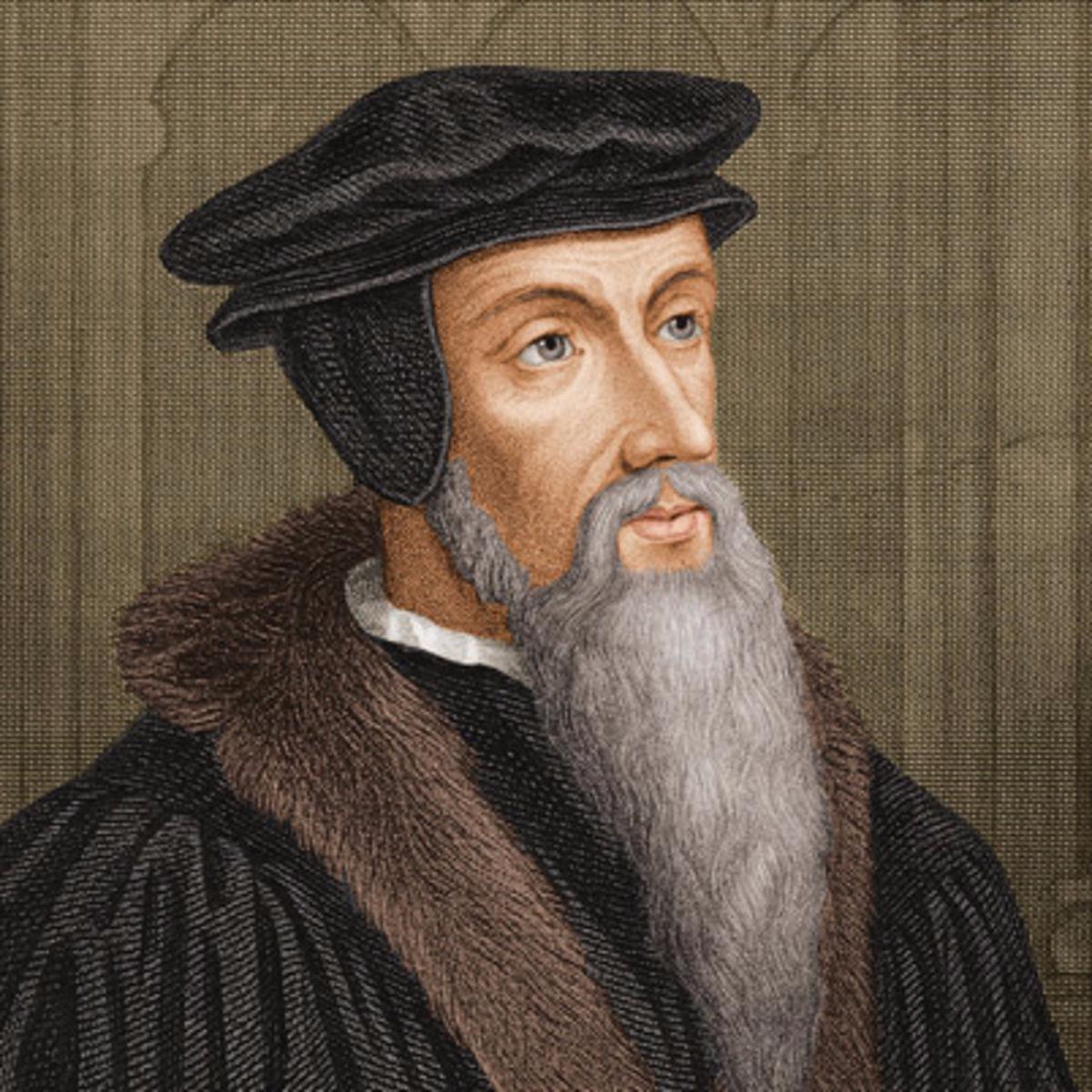
Writing about John Calvin’s life can take hundreds of pages. Having become one of the greatest figures in Christian history, his legacy has become the subject of many books. What John Calvin believed, what he taught and how he lived make his biography an interesting study material both for history/religion students as well as those who want to know how our society developed into what we have today.
Who Was John Calvin?
Born on July 10, 1509 in France, John Calvin was a theologian and pastor of the church during the times of the protestant reformation. He is famous for making a powerful impact on the Protestantism and its fundamental doctrines having become Martin Luther’s successor. Calvin became a principle figure in the development of Calvinism, one of the systems of Christian theology. The aspects of this teaching include such important topics for Christianity as God’s sovereignty in salvation from eternal hell and predestination. Calvinism has become a popular teaching around the world and today the Reformed and Presbyterian church follow this system of belief.
John Calvin also was an apologetic writer whose works are often quoted by bible scholars and history professors. His written commentaries to the books of the Bible, confessional documents, and cordial letters to many reformers have become a valuable part of his legacy. Around 1530 Calvin made a decision to break from the Roman Catholic Church. The religious tensions caused violent protests in France and Calvin fled to Switzerland where later he published The Institutes in 1536. At that time he was recruited to help reform Geneva church where he used to preach sermons. However, the reformation process wasn’t going smoothly as the city council resisted Calvin’s ideas and as a result he was expelled. After that John Calvin went to Strasbourg to become the minister in church of French refugees. He never quitted supporting the reformation movement in Geneva though and was back there to lead the church in 1541.
When he returned to Switzerland, John Calvin despite the severe opposition from powerful families in the city introduced liturgy and new church government principles. At this time a Spanish theologian Michael Servetus who was considered (by Protestants and Catholics) to have heretical views of the Trinity came to Geneva. Denounced by Calvin, Servetus was burned at the stake by the city council. Eventually, those who opposed John Calvin and his ideas in Geneva were forced out allowing French theologian to spend his final years in the city promoting the Protestant Reformation movement.
Interesting Facts about John Calvin
1. John Calving had to spend a half of decade studying law, a subject he didn’t love, at the University of Orleans. His father decided his son should become a lawyer. He made this decision when John Calvin was preparing to study theology in Paris.
2. Calvin wrote his important work, The Institutes, when he was 27 (he updated it later by publishing new editions during his life). It was meant for those who were interested to find out about the evangelical faith. It was a great work to summarize what he believed to be true godliness and doctrine.
3. Initially, he had no interest in becoming a pastor. Calvin opposed to William Farel saying he was a scholar and had no intention of becoming a priest. However, after long discussions with Farel he decided to stay in Geneva which eventually led him to becoming a pastor. Later, Calvin said that at that time he had felt the hand of God and His providence when making the decision.
4. Calvin didn’t have his own children. His prematurely born son, Jacque, survived only briefly.
5. He managed to preach over 2,000 sermons when he was in Geneva. An interesting thing is that he didn’t use any notes and his sermons lasted more than 1 hour each.
6. Calvin worked to death. When he could barely walk a hundred yards to church, they carried him in a chair so that he could preach to the congregation. When the physicians didn’t allow him to go to the lecture room, he would let the people come into his bedroom to give lectures there.
7. In Geneva his main concern was the creation of a college, an educational institute for children. The College de Geneve founded by John Calvin in 1559 is considered today the oldest public secondary school in the city (today known as the College Calvin).
John Calvin’s Wife
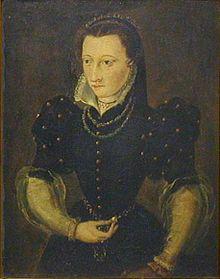 Idelette was the only wife of John Calvin. She died in 1549 and as Calvin noted was a faithful helper in the ministry. Idelette Storder de Bure Calvin was born in Gelderland. She was first married to John Storder from Liege with whom she moved to Strasbourg. At that time they belonged to the religious group of Anabaptists. John Storder died after an illness leaving his wife alone.
Idelette was the only wife of John Calvin. She died in 1549 and as Calvin noted was a faithful helper in the ministry. Idelette Storder de Bure Calvin was born in Gelderland. She was first married to John Storder from Liege with whom she moved to Strasbourg. At that time they belonged to the religious group of Anabaptists. John Storder died after an illness leaving his wife alone.
Calvin wasn’t thinking about marriage until he struck 30. He was so busy in his ministry that he didn’t even try to find himself a woman. Interestingly enough, he asked his friends to help him find one and as a result Martin Bucer who was also his fellow minister, recommended Idelette. Eventually Idelette and Calvin married in 1540.
Unfortunately, Calvin’s son died in infancy. Idelette couldn’t deliver a baby for John Calvin which Catholics took for a judgment upon him for being a heretic. In response to this slander, he said he was more than happy with his many sons through the faith. Idelette served John in all of his illnesses, visited afflicted and those who were sick. She was hospitable doing everything she could to make her home a refuge for people who were persecuted for their beliefs.
John’s wife died after a lasting illness in 1549 with the words of hope on her lips as she trusted God for her future. When she died, Calvin was 40 years old but he never married anybody else. Later he wrote about Idelette’s faithfulness and uniqueness. She was a humble woman who served the church and her husband bringing joy and peace wherever she lived. Even in her death John learned a lot about the Holy Spirit being a Comforter.
Martin Luther and John Calvin
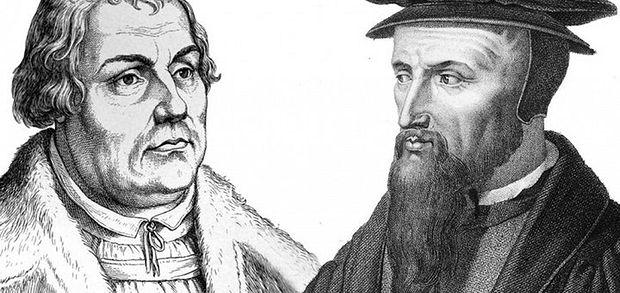
The lives and teachings of Luther and Calvin have many similarities. But it is not to say they agreed in everything. Both their lives and beliefs had some differences some of which were quite interesting.
Although their education and the way they were brought up were similar, they had totally different personalities. Unlike Calvin who was shy, Luther was a man who never tried to hide his emotions and actions. But even despite the fact that they had different characters both of them were reluctant to fight the opposition. In fact, there were actually encouraged into the fight by those fellow ministers who surrounded them. Calvin and Luther sought to please and serve God and, therefore, they believed the Bible wasn’t the product of the church, but the Word of God. That would mean that Scripture alone had ultimate authority, not the church (contrary to what the Catholic church was saying).
They both devoted their lives to emphasizing the sovereignty of God and had their theologies completely Christ-centered. This brought them to believe that salvation from sin and eternal hell was possible only in Christ. As opposed to the general opinion of the Catholics, Luther and Calvin believed humans couldn’t save themselves and that the righteousness was declarative, not infused. Additionally, they both preached that that every individual must have special kind of faith (“alive faith”) in order to be saved as opposed to acknowledgment of Christ’s existence.
Luther and Calvin eventually became leaders of the Protestant revolution. Despite their differences in characters and theological views, these men were actively proclaiming the truth in the environment where this truth was directly opposing the ruling Catholics church. Luther launched the Reformation by nailing the famous list of 95 theses to the door of the Wittenberg church denouncing the heretic views of the Catholics. Calvin received the reformation baton from Luther and continued to spread and live out the Reformation theology.
What Did John Calvin Believe?
John Calvin was a person of integrity and he acted upon his beliefs. His faith was the driving force of what he did during his life. In fact, Calvin’s theology laid the foundation for Reformed Teachings that still stand strong today. There are many books written about what Calvin believed to be true about God, church, and the gospel. Thousands of pages are devoted to his understanding of the Scriptures but the best summary of his beliefs can be found in the TULIP acronym.

T – Total depravity which basically means that due to sin, no human can understand the Gospel unless God himself intervenes. In other words, no man can save himself without God’s saving power. Neither good deeds nor any other thing can bring salvation apart from God alone.
U – Unconditional election refers to God electing certain people to receive, understand and believe in the Gospel. At the same time those who are not elected will be rejecting God and go to hell.
L – Limited atonement means Jesus Christ died only for the sins of those whom God had elected before the foundations of the earth. Thus, it defines the scope of the sacrifice of Christ on the cross.
I – Irresistible grace assumes that everyone whom God elected would come to the faith and knowledge of God (and will be saved through faith).
P – Perseverance of the saints refers to the permanent salvation of those God chosen for eternal life in Heaven. In other words, those who are truly saved will not fall away from God’s grace and mercy.
This TULIP summarizes what John Calvin believed. Obviously, this is a very condensed version of his theology but it still gives the idea how it was different from the teachings of those time. Again, there are many books written to explain this TULIP in detail because it is much more complex than it seems.
John Calvin Teachings
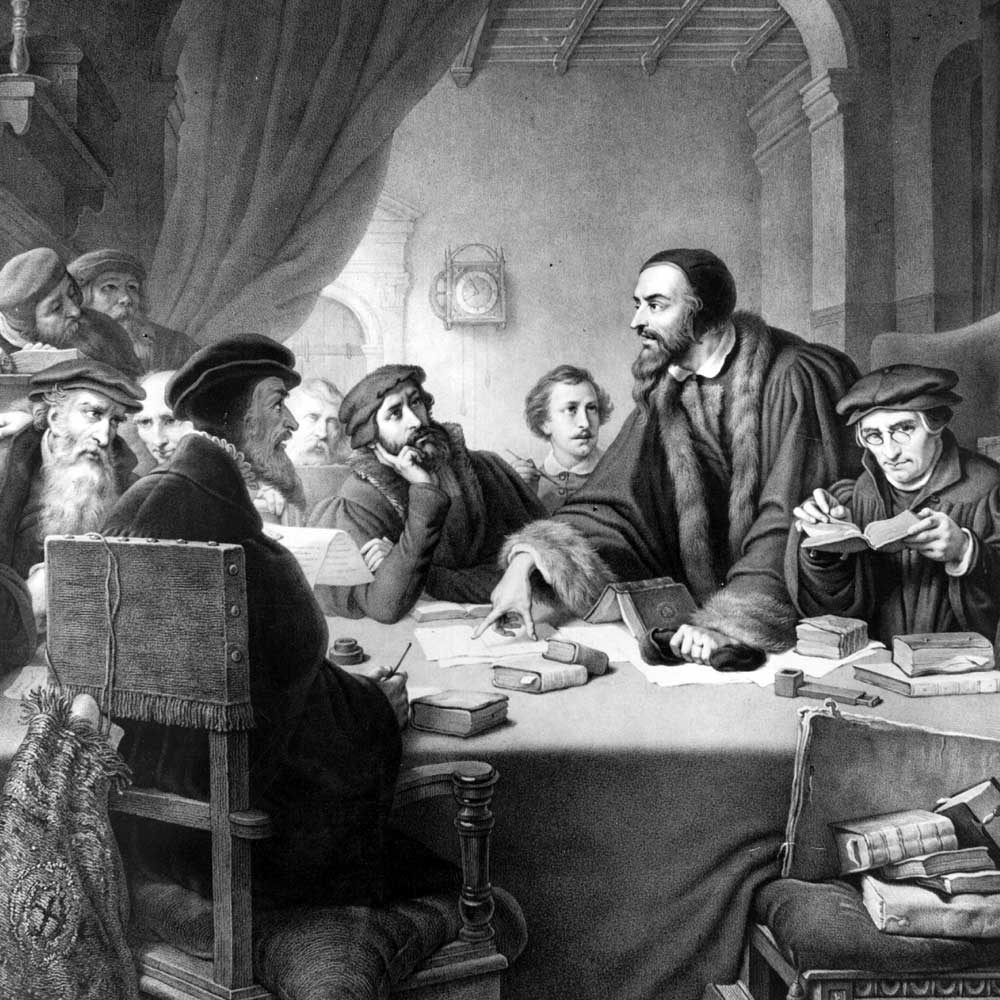
John Calvin taught that God had a plan for this world and all of those who inhabited it. This plan according to Calvin’s beliefs was at all stages completely controlled by the will of God. Everything that happened was the result of divine providence. Consequently, no human could do anything to ensure own salvation. In other words, people were not in charge of their own salvation nor they could deserve it in any way. Thus, all are doomed for hell unless God intervenes and provides His saving grace through faith to those He chooses. John Calvin taught that there are people who were elected by God to be saved from hell from the foundations of the Earth while others were preordained to eternal sufferings. This teaching was described in detail in his work “Institutes of the Christian Religion”.
John Calvin is considered to be the successor of Martin Luther, therefore his teachings were similar to those of Luther. Although Calvin was recognized as the leader of the Protestant Reformation (its second wave), he took a much colder and intellectual view of Christian faith. As opposed to Luther, his teachings were less passionate and emotional appealing more to the human intellect. Calvin was radical in his teachings which were also controversial to many. However, after he became the head of Geneva state, Calvin’s teachings drew huge crowds of Protestants. More than that, Calvin sent pastors to different countries to plant Protestant seeds and spread his teachings. Such efforts eventually resulted in the establishment and development of the Reformed Church.
How Did John Calvin Die?
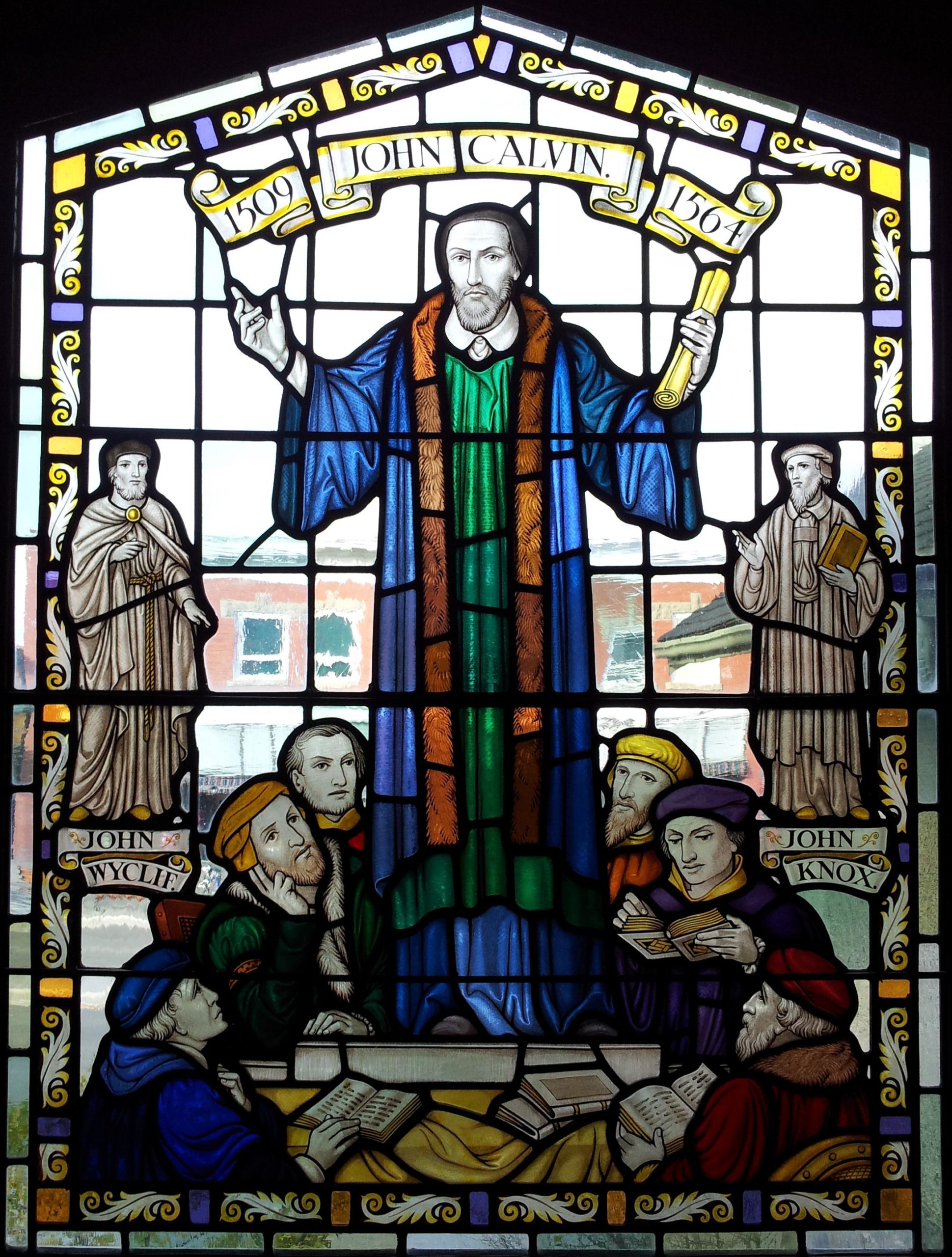
During the final years of his life, Calvin enjoyed the reputation of a reformer throughout the world which was opposite to what Luther was through in his final years. More than that, Luther and Calvin had a doctrinal conflict on the subject of Eucharist (communion). As a result of the disputes over this subject, Calvin was disappointed by the lack of unity among the reformed churches. But not doctrinal discussions alone surrounded the final years of John Calvin. He was also supporting the building of churches in his homeland (France) by sending pastors and distributing literature. Such support was funded by the church in Geneva because the city council refused to provide financial means to Calvin’s missionary activities.
John Calvin became ill in the autumn of 1558. Despite this fact, he continued to work hard to complete the revised version of the Institutes. The adjustments he made were so significant that Calvin referred to this version as to a new work. One of his worries was that he would die before finishing this revision of this great work of his. Nevertheless, Calvin managed to expand the last edition of the Institutes from 21 to 80 chapters before he passed away.
After his recovery, he was unlucky to strain his voice because it consequently brought on a complication in the form of a violent coughing. His health started to decline significantly from that moment on. April 25, 1564 was the day when Calvin preached his final sermon in the church. When his fellow ministers came to visit him in a couple of days after his last sermon, it was the last time when he spoke his farewell. Calvin remembered Geneva reformation as well as some of the difficult moments he had to go through. He died in the age of 54 on May 27, 1564. The reformed ministers were afraid that they could be accused of starting a new saint’s cult because so many people were coming to see Calvin’s body. As a result, John Calvin was buried in an unmarked grave.
Books by John Calvin
There are many quotes that are used from John Calvin books today both in universities as well as in protestant churches in the United States of America. Below you will find the list of Calvin’s books/works some of which have become very famous around the world.
- Calvins Commentaries
- First Epistle of Paul to the Corinthians
- Suffering
- Treatises against the Anabaptists and against the Libertines
- How They Found Christ
- Hosea (Geneva Series of Commentaries)
- Joel, Amos & Obadiah (Geneva Series of Commentaries)
- The Covenant Enforced
- 1 and 2 Timothy and Titus
- Concerning the Eternal Predestination of God
- Heart Aflame
- John
- Genesis (Geneva Commentaries)
- Letters of John Calvin
- Commentaries-Minor Prophets-5v Set
- A Harmony of the Gospels
- Jeremiah and Lamentations
- Of the Popish Mass
- Matthew, Mark, and Luke
- Sermones Sobre Job
- Calvin’s New Testament Commentaries Series
- Calvin’s Ecclesiastical Advice
- The Acts of the Apostles 1-13
- Prayer
- The Bondage and Liberation of the Will
- Calvin
- Comentarios & Epistolas Pastorales
- The Epistles of Paul the Apostle to the Galatians, Ephesians, Philippians and Colossians
- Golden Booklet of the True Christian Life
- The Mystery of Godliness
- Day by Day With John Calvin
- 1 and 2 Thessalonians
- A Reformation Debate
- Great Sermons
- John Calvin
- Acts
- Grace and Its Fruits
- Commentaries-Jeremiah 30-47
- Parallel Classic Commentary on the New Testament
- An Admonition Concerning Relics
- The Christian Life
- Libro de Oro de La Verdadera Vida Cristiana
- The Word And Prayer
- The Second Epistle of Paul the Apostle to the Corinthians and the Epistles to Timothy, Titus and Philemon
- Institutes Of The Christian Religion V2
- An Abridgement of the Institution of Christian Religion 1585
- Commentaries on the Minor Prophets
- Daniel I (Chapters 1-6)
- Galatians, Ephesians, Philippians, and Colossians
- Jonah, Micah & Nahum (Geneva Series of Commentaries)
- Isaiah
- Hebrews and 1 & 2 Peter
- Gospel According to St. John 1-10
- CCC
- Geneva Bible 1599
- Truth for All Time
- Knowledge of God the Creator
- Romans and Thessalonians
- On God and Man